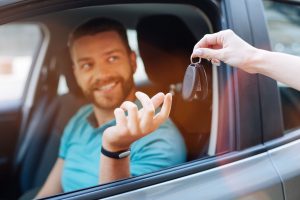As Palm Beach personal injury lawyers, our clients are those who have been impacted by the negligence or wrongdoing of others. However, we have occasionally heard of incredulous third-party defendants who wonder how they could possibly be held liable for someone else’s misdeeds. But there are quite a few instances in Florida injury law wherein statute allows for vicarious and third-party liability. Car accident cases may be among these. 
In general, there are three ways third parties can be liable for Florida car accidents:
- Drunk driving accidents. In drunk driving accidents, third parties, such as bars or social hosts, can be held legally responsible per F.S. 768.125, if they either served alcohol to the impaired driver prior to the crash – knowing they were either under the age of 21 or habitually addicted to alcohol. This is called “dram shop liability.”
- Employers of negligent drivers. If a tow truck driver is on the job and runs a red light, crashing into another car and causing serious injuries, the tow truck driver’s employer may be held liable – even if the company technically did nothing wrong. Employers can be held vicariously liable for the negligence of their employees if the workers were acting in the course and scope of employment at the time of the incident. This is based on a legal doctrine called respondeat superior, which is Latin for “let the master answer.”
- Vehicle owners. This is where we sometimes hear the question, “Can I be sued in South Florida if someone else wrecks my car?” And the answer is: Yes. Florida is a little unique in this because of its recognition of the dangerous instrumentality doctrine. Basically, it was established in the 1920s by the Florida Supreme Court that motor vehicles are recognized as inherently dangerous instruments. As such, if you own one and you allow someone to use it (with express or implied permission) and that person goes on to operate it in a way that is negligent and causes harm to others, YOU can be held legally responsible. This is another example of vicarious liability for someone else’s negligence. However, it only applies if you have given that driver permission. If someone steals your car and then wrecks it, you would not be vicariously liable in that instance.
Sometimes, vehicle owners can be found directly negligent too – even if they weren’t operating the vehicle. As our Palm Beach personal injury lawyers can explain, there may also be grounds for negligence as well.
For example, if a vehicle owner allows someone to borrow their car despite knowing that the person might be unsafe behind the wheel (underage, intoxicated, has a history of poor driving behavior, suspended license, etc.), then you could be liable on grounds of negligent entrustment. In other words, you owed a duty of care to others on the road to only entrust your vehicle to someone who was responsible. If you knew or should have known that the person to whom you entrusted your vehicle was careless, impaired, or otherwise displayed poor judgment, then an accident in that situation would be reasonably foreseeable on your part. Therefore, you can be held liable in Florida for negligent entrustment.
Although Florida does not require most motorists to carry bodily injury liability coverage, many policies come standard with it. If you do not have this coverage, you may be personally on the hook for the injured person’s losses. We strongly urge all drivers to carry this as well as uninsured/underinsured motorist coverage, in the event they suffer injuries that are caused by someone whose auto insurance coverage is inadequate or non-existent. Damages in such cases can include compensation for property damage, medical bills, lost wages, and pain and suffering.
Contact the South Florida personal injury attorneys at Halberg & Fogg PLLC by calling toll-free at 1-877-425-2374. Serving West Palm Beach, Miami, Tampa, Orlando and Fort Myers/ Naples. There is no fee unless you win.
Additional Resources:
So. Cotton Oil Co. v. Anderson, June 20, 1920, Florida Supreme Court (dangerous instrumentality decision)
More Blog Entries:
South Florida E-Scooter Lawsuit Alleges Bird Rides Caused Personal Injury, June 11, 2022, Palm Beach Injury Lawyer Blog
 South Florida Injury Lawyer Blog
South Florida Injury Lawyer Blog

